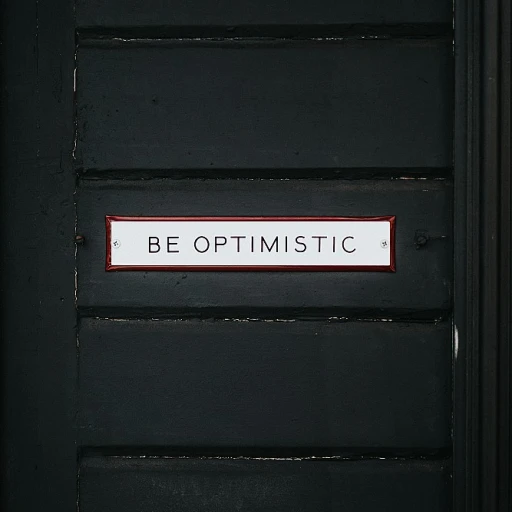Why Change Careers in Your 50s?
Embracing Change in Your Golden Years
Making a career transition in your 50s may seem daunting, but it can also be an exciting opportunity for personal and professional growth. As we reach this stage in life, the desire for change often stems from a mix of economic necessity, personal fulfillment, or simply the urge to try something new. One significant reason individuals consider career changes at this age is a shift in priorities. After decades in the same industry or role, it's not uncommon to seek jobs that offer more flexibility, align with personal passions, or provide a sense of purpose. Moreover, life's financial and family commitments might dictate a pivot to roles less demanding or more lucrative. Economic factors can also play a crucial role. With changing landscapes in various sectors, such as technology and healthcare, new opportunities arise that may not have been available earlier in your career. These emerging fields often provide chances to re-engage with the workforce in innovative ways. Besides personal and economic aspects, some individuals at 50 become caretakers for aging parents or grandchildren, necessitating a career that aligns better with these responsibilities. For those seeking more stability or better financial security, moving into a new career that offers these benefits is a compelling reason. Changing careers at 50 requires courage and preparation, and it often involves identifying transferable skills, exploring new educational opportunities, and navigating the job market effectively. Stay tuned as we delve into these crucial aspects of career transition in the subsequent sections.Identifying Transferable Skills
Building Upon Your Existing Skill Set
Transitioning to a new career at the age of 50 can indeed be a daunting prospect. However, it's essential to acknowledge that you have accumulated a wealth of experience and skills over the years, many of which are incredibly valuable and transferrable across various industries. By identifying these transferable skills, you can create a smoother and more successful transition into a new career path. Start by reflecting on your past roles and responsibilities. What did you excel at? Was it leadership, communication, project management, or something else? Make a list of these skills and think about how they can be applicable in different contexts. For example, strong communication skills are not only beneficial in traditional roles but are also valuable in sales, counseling, education, and more. Consider seeking feedback from colleagues, supervisors, or mentors about your strengths; sometimes, they can identify skills that you might overlook. Additionally, professional networks such as LinkedIn can be a treasure trove of information. By connecting with individuals who have transitioned careers or hold positions you're interested in, you can gain insights into what skills are most relevant and sought after in your desired field. Remember, the skills you already possess are just as important as acquiring new ones. By leveraging your existing capabilities, you're not starting from scratch—you're building on a solid foundation to explore new opportunities. Embrace this journey of self-discovery, and you'll find that your age and experience are invaluable assets in navigating a successful career transition.Training and Education Options
Pursuing Educational Opportunities
If you're contemplating a career change in your 50s, adjusting your educational background may be a pivotal step. With advancements in technology and evolving industry requirements, gaining additional training or certifications can enhance your portfolio and strengthen your candidacy in a new field. Consider short courses or certification programs that offer specialized knowledge without the long-term commitment of a degree. Online learning platforms are abundant, providing flexible options to fit education into your current lifestyle. Not only do these platforms offer flexibility, but they also cover a broad range of subjects from data analytics to creative writing, allowing you to tailor your learning to align with your targeted industry. Moreover, many industries offer professional organizations that provide educational resources, workshops, and networking opportunities. Joining these groups can further bolster your skills while immersing you in a community that is resource-rich and supportive. However, before embarking on an educational path, it’s crucial to ascertain the specific skill sets required in your pursued career. This step ties back to identifying your transferable skills. It's essential to clearly understand where your skill gaps may lie and focus on strategies to fill these gaps effectively. For more insights on overcoming educational challenges and building confidence in your career shift, you can explore our article on overcoming the hurdles of shifting careers here. This journey, while daunting at times, is a stepping stone towards a rewarding second act in your professional life.Navigating the Job Market
Understanding the Modern Job Landscape
As you consider a career transition at 50, it's crucial to understand the modern job market, which has evolved significantly over the years. The digital age has transformed industries, creating new opportunities while phasing out some traditional roles. This shift means that job seekers must be adaptable and open to learning new skills, as discussed in the section on training and education options.
Networking: Your Secret Weapon
Networking remains one of the most effective strategies for navigating the job market, particularly for those embarking on a career change later in life. Leverage your existing contacts and expand your network by attending industry events, joining professional groups, and engaging on platforms like LinkedIn. Building relationships can open doors to opportunities that might not be advertised publicly.
Tailoring Your Job Search Strategy
In your 50s, a tailored job search strategy is essential. Focus on companies that value experience and diversity, and be sure to highlight your transferable skills, as mentioned in the section on identifying these skills. Customize your resume and cover letter for each application, emphasizing how your unique background can benefit the organization.
Embracing Flexibility and Open-Mindedness
Being open to different types of employment can also be advantageous. Consider part-time roles, consulting, or freelance work as stepping stones to your new career path. These opportunities can provide valuable experience and help you build a portfolio of work that showcases your capabilities.
Staying Resilient and Persistent
Finally, resilience and persistence are key. The job market can be challenging, but maintaining a positive attitude and staying committed to your goals will serve you well. Remember, many have successfully transitioned careers at 50, as highlighted in the real-life stories section. With the right approach and mindset, you can too.





